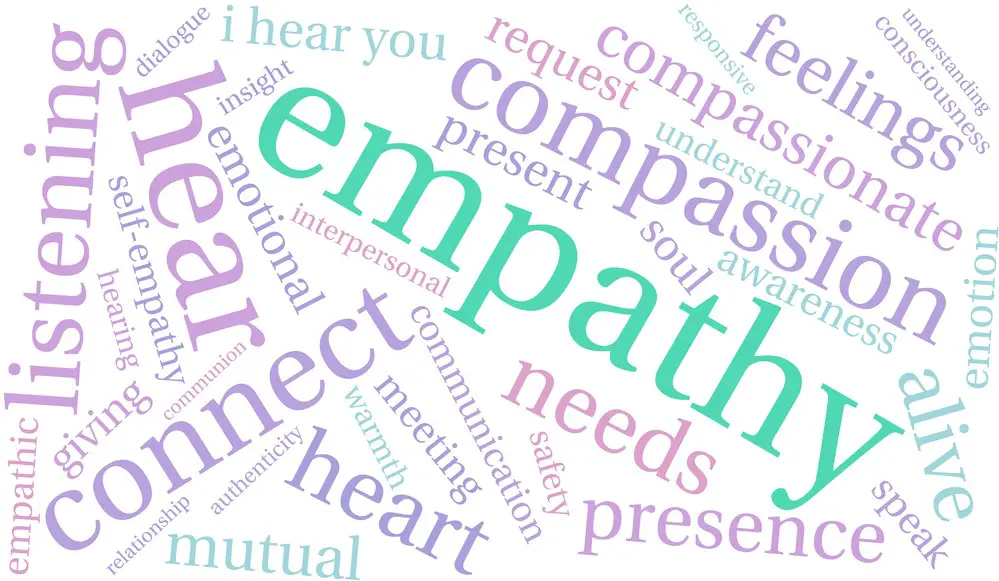As a BetterHelp affiliate, we receive compensation from BetterHelp if you purchase products or services through the links provided
Are you struggling with mental health issues and looking for a way to feel better? Humanistic therapy may be the answer. This therapeutic approach focuses on understanding yourself, your relationships, and how they affect your overall well-being. Through humanistic therapy, you can gain insight into how these factors influence one another while also learning new strategies that help improve mental health. In this blog post, we’ll discuss what humanistic therapy is, its benefits, the types of therapies available, and who it’s suitable for, as well as tips on finding the right therapist and taking care of yourself after sessions. So if you’re ready to explore humanistic therapy further, keep reading.
Table of Contents:
- Benefits of Humanistic Therapy
- Who Can Benefit from Humanistic Therapy?
- What to Expect During a Session
- Finding the Right Therapist
- Taking Care of Yourself After Sessions
- FAQs in Relation to Humanistic Therapy
- Conclusion
Benefits of Humanistic Therapy
Humanistic therapy is a type of psychotherapy that focuses on the individual’s subjective experience and personal growth. It emphasizes self-awareness, free will, and the importance of creating meaningful connections. This form of therapy can benefit those struggling with mental health issues as it helps them gain insight into their behavior, develop healthier coping strategies, increase self-esteem, and improve communication skills.
One benefit of humanistic therapy is that it encourages individuals to become more aware of their thoughts and feelings. By doing so, they can better understand why they act in specific ways or make certain decisions. Through this process, people can learn how to take responsibility for their actions instead of blaming themselves or external factors for their problems. Additionally, understanding one’s emotions can help individuals identify what triggers them so they can manage these reactions healthily.
Another advantage is that humanistic therapy promotes self-acceptance by helping individuals recognize positive and negative aspects of themselves without judgment or criticism from outside sources. This allows them to view themselves realistically while appreciating who they are regardless of flaws or shortcomings. Furthermore, when someone learns to accept themselves unconditionally, it often leads to increased confidence, enabling them to pursue goals more effectively and interact with others more comfortably due to less fear or anxiety associated with social situations.
Lastly, humanistic therapy also improves relationships between individuals by teaching effective communication techniques such as active listening skills, which involve paying attention when another person speaks rather than just waiting until it’s your turn again to respond quickly without considering what was said first. In addition, practicing empathy, being mindful during conversations, expressing oneself clearly, and setting boundaries appropriately can all contribute to developing healthier interpersonal relationships where both parties feel heard and respected.
Overall, Humanistic Therapy offers many benefits, including gaining insight into one’s behavior, developing healthier coping strategies, increasing self-esteem and confidence levels, and improving communication skills and relationship dynamics. Allowing individuals suffering from mental health issues access to these tools could lead them toward recovery and overall well-being.
Humanistic therapy offers many benefits to those struggling with mental health issues, such as increased self-awareness and improved communication skills. Next, let’s look at the different types of humanistic therapy available.
Who Can Benefit from Humanistic Therapy?
It can benefit those struggling with mental health issues such as depression, anxiety, trauma, or relationship problems.
Humanistic therapy aims to help people become more self-aware and understand themselves better. This form of psychotherapy encourages individuals to explore their innermost thoughts and feelings to understand why they act the way they do. Through this process, clients can make positive changes by understanding how past experiences have shaped them and how current situations may affect them emotionally.
One key aspect of humanistic therapy is its emphasis on empathy and compassion towards oneself and others. Creating an environment where clients feel safe enough to express themselves without judgment or criticism from the therapist or anyone involved in the session allows for deeper exploration into one’s psyche, leading to more significant personal growth over time.
Another benefit of humanistic therapy is its focus on developing healthy relationships with oneself and others around you. Clients learn how to recognize unhealthy patterns in relationships to work towards establishing healthier ones instead; this includes learning practical communication skills such as active listening techniques, which can help foster stronger connections between two people engaging in conversation together. Individuals gain the tools necessary for creating meaningful and lasting relationships with those around them.
Overall, anyone looking for a deeper understanding of themselves or seeking positive change within their life could benefit from participating in humanistic therapy sessions with a qualified professional therapist specializing in this field. With patience and dedication over time, these sessions will provide invaluable insights that allow individuals to take control of their own lives while improving upon existing relationships with family members or friends alike.
People from all walks of life can benefit from humanistic therapy. Understanding what to expect during a session can give them insight into how this therapy may help them.
What to Expect During a Session
When attending a session with a humanistic therapist, it is essential to know what to expect. Humanistic therapy focuses on self-exploration and personal growth to help individuals reach their goals. It is based on the belief that people have an innate capacity for self-actualization and growth if given the right environment and support.
During a session, you can expect your therapist to provide an open, nonjudgmental space where you can freely express yourself without fear of criticism or judgment. Your therapist will listen attentively as you discuss your thoughts and feelings about any issues or challenges you face. This therapy aims not only to help manage symptoms but also to promote long-term positive change by helping individuals gain insight into themselves and develop healthier coping strategies for dealing with stressors in life.
Depending on the individual’s needs and preferences, the therapist may use active listening, reflective dialogue, role-playing, guided imagery exercises, journaling activities, etc. These techniques are designed to help explore inner experiences more deeply so that meaningful insights can be gained about oneself, which could lead to a greater understanding of one’s behavior patterns and improved decision-making skills when faced with difficult situations in life.
Knowing what to expect during a session can help you feel more prepared and comfortable. The next step is finding the right therapist to meet your needs best.
Types of Humanistic Therapy
Gestalt Therapy:
Gestalt therapy is a style of psychotherapy that focuses on the present moment rather than trying to interpret the past or using it to explain current situations. It encourages individuals to become more aware of their thoughts, feelings, and actions to accept responsibility for them. This type of therapy also helps people learn how to value themselves. Therapists can use techniques such as role-play and re-enacting scenarios to bring out spontaneous reactions from clients and help them understand how these reactions can change over time.
Client-Centered Therapy:
Client-centered therapy is based on the idea that self-discovery and fulfillment are possible with an understanding therapist who accepts you unconditionally. The therapist creates a supportive atmosphere but avoids giving advice or interpretations. Instead, they reflect on your ideas so that you can better comprehend yourself, resolve conflicts within yourself, and reframe your beliefs. Ultimately this process assists you in making changes in your behavior which will help you become closer to being your true self.
Effectiveness of Humanistic Therapy
Humanistic therapy is a type of psychotherapy that focuses on the individual’s subjective experience and self-expression. It emphasizes personal growth, understanding one’s feelings, and developing empathy for others. Humanistic therapies often treat depression, anxiety, stress, relationship issues, trauma, and more.
Despite its popularity among many mental health professionals as an effective treatment for various psychological conditions, there has been some debate about the effectiveness of humanistic therapy compared to other evidence-based therapies, such as cognitive behavior therapy (CBT). A review of 86 studies found that people who participate in humanistic therapies show large amounts of change equal to those seen with CBT. However, it can be challenging to measure what is ‘effective’ when it comes to humanistic therapies since their aim isn’t necessarily symptom reduction like other forms of treatment.
The lack of research supporting the efficacy of humanistic therapy has led some experts to question its effectiveness compared with other treatments. Further research needs to be conducted to understand better how successful this type of psychotherapy can be for individuals struggling with mental health issues.
In general, though, it appears that while not all people respond positively or benefit from humanistic therapy sessions, they may still find value in them by gaining insight into themselves and learning how to manage their emotions better or cope with certain situations, which could lead them towards improved wellbeing overall.
Finding the Right Therapist
Finding someone you feel comfortable talking to is essential when looking for a humanistic therapist. This means considering the therapist’s credentials and experience, as well as their personality and communication style. You should also look for someone with experience working with clients who have similar issues to yours so that they can provide the best possible care for you during your sessions together.
One way to determine if a potential therapist is right for you is by scheduling an initial consultation or phone call. During this time, ask questions about their qualifications and background to understand better how they work with clients. It’s also helpful to inquire about any specific techniques or approaches they use when treating mental health conditions like depression or anxiety. Additionally, ensure that the therapist provides a safe and non-judgmental environment where you can openly discuss your thoughts and feelings without fear of being judged or criticized.
It’s also important to consider whether the therapist offers different therapy services, such as individual, group, family, couples, or online therapy options. Knowing what treatment works best for your needs will help you get the most out of each session with your chosen professional.
Finally, don’t be afraid to trust your gut instinct when selecting a humanistic therapist. If something doesn’t feel right, it’s probably not the right fit for you. Take some time before making any decisions so that you can evaluate all available options carefully before committing yourself long-term to one particular practitioner.
Finding the right therapist who can provide you with the best care and support is essential. Taking care of yourself after sessions is vital for long-term mental health and well-being.
Taking Care of Yourself After Sessions
It is essential to take time after each session of humanistic therapy to reflect on what was discussed and any insights gained. This can help you process the information, better understand your thoughts and feelings, and prepare for future sessions. It’s also a good idea to practice self-care activities such as exercise or relaxation techniques to maintain good mental health between sessions with your therapist.
Exercise can effectively release stress, tension, and negative emotions that may have been brought up during therapy. Exercise releases endorphins, natural mood boosters that can help improve your overall well-being. Walking outside or running can relieve overwhelming thoughts or feelings that might arise after therapy sessions.
Relaxation techniques such as deep breathing exercises or guided imagery can also be beneficial in calming down the body and mind after intense conversations with your therapist. Deep breathing helps reduce anxiety by allowing oxygen into the bloodstream, which relaxes tense muscles. In contrast, guided imagery will enable you to visualize yourself in peaceful settings like beaches or forests, which can bring about inner peace and tranquility when feeling overwhelmed by emotions post-therapy session.
Getting enough sleep is another critical factor in taking care of yourself after therapeutic sessions since it gives our bodies time to rest and recover from the emotional strain we experience throughout the day. Making sure you get at least 7 hours of quality sleep per night will ensure you wake up feeling refreshed rather than drained from lack of restful sleep due to unresolved issues discussed during therapy sessions earlier in the day.
Finally, it is essential not to forget about nutrition when maintaining good mental health between therapeutic sessions. Eating healthy meals full of vitamins and minerals will give us energy throughout the day so we don’t feel exhausted mentally before even starting our next session with our therapist.
FAQs
What are examples of humanistic therapy?
It emphasizes the importance of self-awareness and personal growth. Examples of humanistic therapies include Person-Centered Therapy, Gestalt Therapy, Existential Therapy, Transpersonal Psychology, and Logotherapy. These approaches focus on understanding an individual’s subjective experience to help them develop a sense of identity and purpose in life. They emphasize self-exploration as well as the development of empathy for others. Humanistic therapies often treat depression, anxiety disorders, trauma-related issues, relationship problems, and more.
What does humanistic therapy focus on?
Humanistic therapy is a type of psychotherapy that focuses on helping people gain self-awareness and personal growth. It emphasizes the importance of understanding one’s thoughts, feelings, and behaviors to understand themselves and others better. Humanistic therapists strive to create an environment where clients feel safe enough to explore their innermost thoughts and feelings without fear or judgment. The goal is for individuals to become more self-aware to make healthier decisions, develop meaningful relationships, and ultimately lead happier lives.
What are examples of humanistic therapy?
1. Unconditional Positive Regard:
This is the idea that therapists should treat their clients with respect and acceptance, regardless of any negative behaviors or beliefs they may have.
2. Empathy:
Therapists strive to understand their client’s experiences from their perspective to create a safe space for them to express themselves without judgment.
3. Self-Actualization:
The goal of humanistic therapy is for clients to become self-aware and reach their full potential by exploring their inner thoughts and feelings through meaningful conversations with the therapist.
4. Congruence:
This refers to the ability of a therapist to be genuine and authentic in interactions with clients so they can build trust and form an effective therapeutic relationship.
What are the 3 humanistic theories?
1. Person-Centered Therapy:
This approach focuses on the individual’s capacity for self-exploration and growth, emphasizing unconditional positive regard for the client and a focus on their subjective experience.
2. Gestalt Therapy:
This theory emphasizes awareness of present thoughts, feelings, and behaviors to gain insight into how these elements interact. It encourages clients to take responsibility for their actions and be mindful of their environment.
3. Existential Therapy:
This approach looks at life as a whole, focusing on meaning-making through understanding one’s existence about others and the world around them. It encourages clients to explore their values and beliefs while developing strategies for making sense of life experiences that may have caused distress or suffering.
Conclusion
Humanistic therapy is a great way to help people with mental health issues find the support and understanding they need. It can allow individuals to explore their feelings, thoughts, and behaviors in a safe environment. Humanistic therapy has many benefits that can improve overall well-being. If you are looking for a therapist specializing in humanistic therapy, research and find someone who fits your needs. Remember that it’s essential to take care of yourself after sessions by getting enough rest, eating healthy meals, exercising regularly, and spending time with friends or family. Humanistic therapy is an effective treatment for those struggling with mental health issues – so don’t be afraid to reach out for help.
We understand that life can be difficult, and support is essential. That’s why we created Rest Equation, an online therapy platform for humanistic-based treatments. Our goal is to provide a safe space where you can talk about your struggles and receive personalized guidance from experienced professionals in the comfort of your own home. We invite you to take the first step towards improved mental health today by signing up with Rest Equation!
- 3 Ways Wearing a Hat Can Help Lower Your Stress Levels - April 19, 2025
- Breaking the Silence: Why Men’s Mental Health Matters More Than Ever - April 15, 2025
- How to Transform a Home’s Patio Space into a Relaxing Space - March 23, 2025
This site contains affiliate links to products. We will receive a commission for purchases made through these links.





